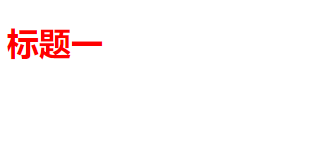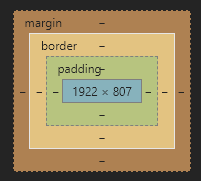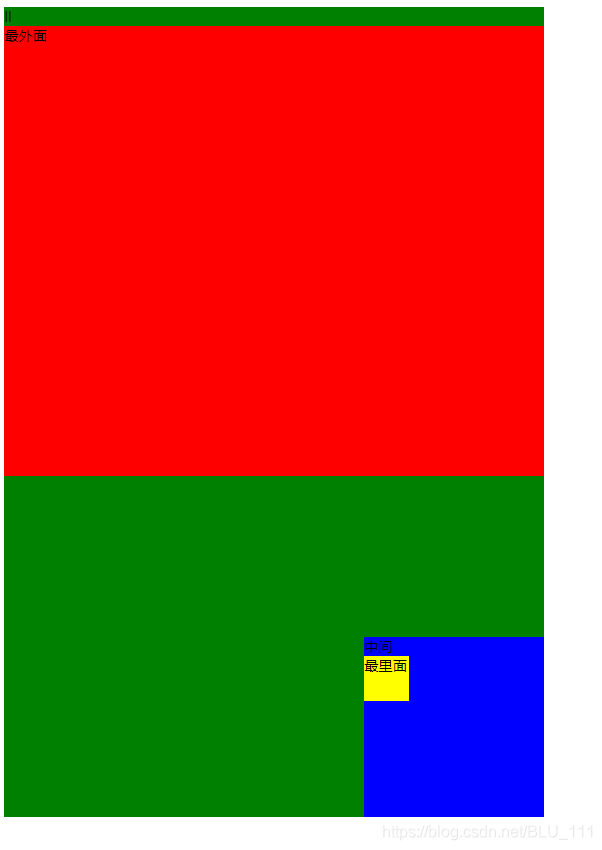CSS3 0(Cascading Style Sheet) 层叠级联样式表
快速入门:
CSS3.0(Cascading Style Sheet) 层叠级联样式表
快速入门:
<!DOCTYPE html>
<html lang="en">
<head>
<meta charset="UTF-8">
<meta name="viewport" content="width=device-width, initial-scale=1.0">
<title>CSS01</title>
<style>
h1 {
color: red;
}
</style>
</head>
<body>
<h1>标题一</h1>
</body>
</html>

CSS的三种导入方式:
行内样式(优先级最高,但不建议这样写):
<h1 style="color: red;">标题一</h1>
内部样式表(不建议这样写):
<head>
<style>
h1 {
color: red;
}
</style>
</head>
<body>
<h1>标题一</h1>
</body>
外部样式表(优先级最低,但实现了HTML与CSS的分离,推荐使用):
h1 {
color: red;
}
<head>
<link rel="stylesheet" href="css/a.css">
</head>
<body>
<h1>标题一</h1>
</body>
选择器:
3种基本选择器:
- 标签选择器(权重最低)
- 类选择器
- id选择器(权重最高)
/* 标签选择器,会选择所有h1标签 */
h1 {
color: red;
background: #3cbda6;
border-radius: 20px;
font-size: 80px;
}
/* 类选择器,会选择所有类名为text-red的元素 */
.text-red{
color: red;
}
/* id选择器,会选择id为description的元素,id必须保证唯一 */
#description{
color: black;
}
<h1>标题一</h1> <p class="text-red">content</p> <span class="text-red">content</span> <p id="description">some content</p>
层次选择器:
- 后代选择器:在某个元素内的元素(包括子代、孙代…)
- 子选择器:在某个元素内一层的元素(只包括子代)
- 相邻选择器(一个弟弟选择器):某个元素 之后 的 一个 同级选择器
- 通用选择器(所有弟弟选择器):某个元素 之后 的 所有 同级选择器
/* 后代选择器 */
body p{
}
/* 子选择器 */
body>p{
}
/* 相邻选择器(弟弟选择器) */
.active + p{
}
/* 通用选择器(所有弟弟选择器) */
.active~p{
}
<body>
<p>p1</p>
<p class="active">p2</p>
<p>p3</p>
<div>
<p>p4</p>
<p>p5</p>
</div>
</body>
结构伪类选择器:
/* div中的第一个p元素 */
div p:first-child{
}
/* div中的最后一个p元素 */
div p:last-child{
}
/* div中的最后一个p元素 */
div p:last-child{
}
<body>
<p>p1</p>
<p>p2</p>
<p>p3</p>
<div>
<p>p4</p>
<p>p5</p>
<p>p6</p>
</div>
</body>
属性选择器:
/* class为demo中的所有a标签 */
.demo a{
}
/* 存在id的a标签 */
a[id]{
}
/* id为first的a标签 */
a[id=first]{
}
/* href以http开头的a标签 */
a[href^=http]{
}
/* href以pdf结尾的a标签 */
a[href$=pdf]{
}
字体样式(字体,字体风格,字体大小,字体粗细,字体颜色): font-family: 楷体; font-style:oblique; font-size: 40px; font-weight: bold color: #a13d30; font: italic bolder 12px "楷体";
文本样式(文本居中对齐,首行缩进两个字母,行高,文本装饰) text-align: center; text-indent: 2em; line-height:30px; text-decoration: underline; 文本阴影(阴影颜色,水平偏移,垂直偏移,阴影半径) text-shadow: #3cc7f5 -5px 5px 2px a标签去除下划线: text-decoration: none;
超链接伪类:
//默认属性
a{
text-decoration: none;
color: #000000;
}
//鼠标进入
a:hover{
color: orange
}
//鼠标按住未松开
a:active{
color: green
}
//鼠标点击之后
a:visited{
color: red
}
li 标签的样式:
//去除圆点 list-style: none; //空心圆 list-style: circle; //数字编号 list-style: decimal; //正方形 list-style: square;
背景样式:
//背景颜色
background-color: blue
//背景图片(默认是 repeat 平铺效果)
background-image: url("");
//水平平铺,垂直平铺,不平铺
background-repeat:repeat-x;
background-repeat:repeat-y;
background-repeat:no-repeat;
盒子模型:

上下外边距为0,左右居中: margin: 0 auto; 上下左右外边距为0: margin: 0; 上下外边距为0,左右外边距为1px: margin: 0 1px; 设置上左下右外边距: margin: 0 10px 1px 10px; 上下左右内边距为10px: padding: 10px; 上下内边距为0,左右内边距为10px: padding: 0 10px 设置上左下右内边距: padding: 10px 10px 10px 10px
浮动:
(图文详细)最通俗易懂的CSS 浮动float属性详解:https://www.haodaima.com/css/714194.html
标准文档流: 元素默认自左往右,从上往下的流式排列方式。分为块级元素和行内元素
块级元素: display: block; block元素会独占一行,多个block元素会各自新起一行。默认情况下,block元素宽度自动填满其父元素宽度。 行内元素: display: inline; inline元素不会独占一行,多个相邻的行内元素会排列在同一行里,直到一行排列不下,才会新换一行,其宽度随元素的内容而变化。 是块元素,但可以内联(在一行): display: inline-block; 简单来说就是将对象呈现为inline对象,但是对象的内容作为block对象呈现。之后的内联对象会被排列在同一行内。 比如我们可以给一个link(a元素)inline-block属性值,使其既具有block的宽度高度特性又具有inline的同行特性。 元素不显示也不占用空间: display: none;
定位:
相对定位(相对自己原本的位置偏移,它原来的位置仍然被保留在标准文档流中)
相对自己原本位置上移20px,右移20px: position: relative; top: -20px; left: 20px;
绝对定位(它原来的位置脱离了标准文档流)
绝对定位 absolute 一般和 relative 搭配使用,绝对定位的元素会一层一层地寻找父元素,然后相对于 relative 父元素定位,否则相对于浏览器定位
<body>
<div class="b g">
ll
<div class="a r">
最外面
<div class="s b">
中间
<div class="ss y">
最里面
</div>
</div>
</div>
</div>
<style>
.b {
height: 900px;
width: 600px;
position: relative;
}
.a {
height: 500px;
width: 600px;
/* position: relative; */
}
.s {
height: 200px;
width: 200px;
position: absolute;
right: 0px;
bottom: 0px;
}
.ss {
height: 50px;
width: 50px;
}
.r {
background-color: red;
}
.b {
background-color: blue;
}
.y {
background-color: yellow;
}
.g {
background-color: green;
}
</style>
</body>

固定定位(相对于浏览器定位,不随页面滚动而滚动)
<div class="ss g">
</div>
<style>
.ss {
height: 50px;
width: 50px;
position: fixed;
top: 30px;
right: 20px;
}
.g {
background-color: green;
}
</style>
z-index
z-index 属性设置元素的堆叠顺序。拥有更高堆叠顺序的元素总是会处于堆叠顺序较低的元素的前面。
注释:元素可拥有负的 z-index 属性值。
注释:Z-index 仅能在定位元素上奏效(例如 position:absolute;)
补充:
设置元素透明度:
opacity: 0.5
到此这篇关于详解CSS3.0(Cascading Style Sheet) 层叠级联样式表的文章就介绍到这了,更多相关css Style Sheet样式表内容请搜索好代码网以前的文章或继续浏览下面的相关文章,希望大家以后多多支持好代码网!
